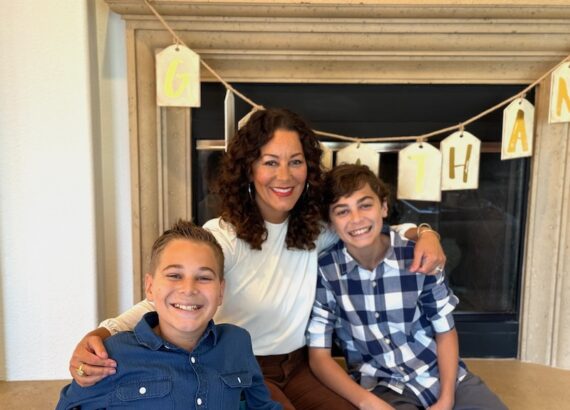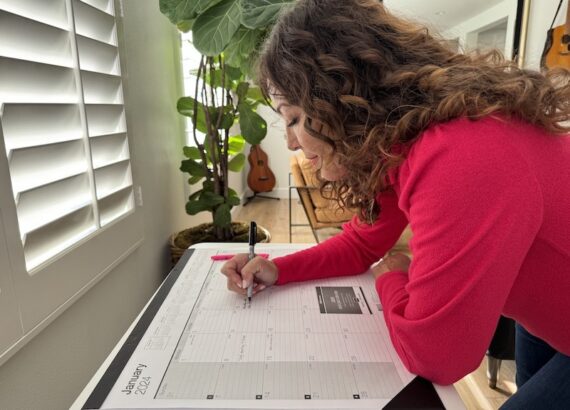Summer Lovin’ & Livin’

Summer is here! For those of us with school-aged children, we have spent the last nine months in school routines, managing school paperwork, navigating IEPs or 504s, communicating with teachers, school OTs, PTs, speech therapists, district administrators, and more. Summer can bring a welcomed break from the routines, to-dos, and the feelings of being overscheduled. But for many of us, summer can also bring feelings of stress. While a welcomed break, the approach of summer can well up all kinds of anxiety in rare disease parents because it can disrupt the routines that we rely on to create structure and order in our chaotic lives. It’s often these same routines and processes that keep our lives running.
For many of our children, routines and structure are necessary to manage their medical needs and their mental health. Changes can be detrimental to children who require continuity and routine because this continuity is often essential for their care. When changes in routine are overwhelming and stressful for our children, it can affect our whole family.
As parents, we have created routines and structure to rise to the required tasks for rare disease parenting. These routines are an integral part of our ability to keep our households functioning. Loss of these routines, even for a short time, can cause challenges.
In addition, summer can bring a pause to many of the relied-on supports. Many families struggle to access regular support systems over the summer months, which can strain parents as caregivers. Many therapists, social workers, providers, and respite are not as accessible in the summer months. In these cases, it’s often parents that step up to play nurse, therapist, counselor, etc.
On top of that, families with multiple children struggle with the different needs of all of their kids. Siblings may want to attend camps, hit the beach, or see friends, while our child with the rare disease still has medical appointments and therapy sessions. Parents are trying to juggle varying schedules and carpooling of multiple children’s wants and needs.
So if the approach of summer is inducing mixed feelings, I get it. If you are both looking forward to the summer break but also feeling anxious about the change in schedules, I’ve done some research and found some resources that may help. Here are a few tips and resources to prepare you and your family for the summer months ahead:
Stick to Routines, But Loosen them if Helpful
If routines are what keep your household running and your child thriving, it’s okay to stick to them even if school is out. But if you feel like you do want some delineation between the school year and summer, loosen the reins a little bit. Build the necessary therapies and medical treatments into your schedule and build in time for summertime activities. If you need a little break from therapy and it will not interfere with health needs, take a week or two off, so you get a reprieve and then get back to it. If your child’s therapy cannot be missed, try and figure out a therapy schedule that still allows you to use the other part of the day for summertime activities. Loosen the routines a little bit if you feel like you are craving that break, but keep the ones you need, and that are the glue that holds everything together.
Plan Your Daily Schedule
If you’re worried about not having structure and routines in your day, make your own daily schedule. Having a plan will help both you and your children maintain a sense of normalcy and know what to expect. Knowing what to expect helps ease children’s anxiety, helps them cope with transitions, and helps manage expectations. A schedule will also help beat the dreaded summer boredom because your children will know what’s coming next. Having routines and schedules will also help when it’s time to transition your children back to school.
Build-In Ways to Keep Learning
If it’s essential that your child continues learning to beat the summer slide, incorporate this into your summer. Ask your child’s teacher if there are any ways they can keep up over the summer. Ask for recommendations on resources and tools. There are also many guides online to summer reading and math and even at-home workbooks you can use to fill in the summer gaps. In addition, summer can provide a time for a different type of learning. It can be a time to work on social skills, daily living skills, hygiene and self-care skills, etc. Without the normal rush, rush, rush, we can slow down and work on overall life lessons. Or summer can be a time for experiential learning, such as learning science through nature and learning math through functional, hands-on dealing with money or measuring for recipes, etc. You can reinforce learning in many ways.
Have Fun at Home
If going out and about is too difficult to manage or outside environments are too stressful or challenging for your child with a rare disease, plan fun at home. Fend off pressure to get “out” if “out” is just not what works for your family. Plan some backyard fun with water balloons, water hoses, a blow-up pool, a tent in the backyard, stargazing, etc.
Incorporate Movement Into Routine
One way to proactively spend part of the day is to build in some type of movement. It’s good not only for your child with a rare disease but also for all family members. Things like simple stretching, yoga, dancing, or anything that promotes movement, are the body but also for the mind and soul. Use the extra time each day to make part of it active so that you’re killing two birds with one stone.
Incorporate Water Activities
Summer spells pools and beaches and water. Water is extremely therapeutic in so many ways and has many benefits. So incorporate some water activities into your routine. The kids will be having fun and getting therapy simultaneously—one of the best benefits of summer.
Plan A Few Family Activities In Advance
Plan a few things in advance so that you have these to look forward to and to break up the big chunk of summer. We all know that activities with a child with a rare disease require a little more upfront planning and consideration. So take a little time upfront and plan a few so that you can pull them off—a baseball game, a road trip, a camp, a trip to the beach, etc. There are now various apps that show accessibility at locations. If your child has a mobility impairment, you can use these apps to find business places, parking spots, and even restrooms that are accessible. So do your research, make some fun plans, add them to your calendar, and have some things to get excited about over the summer.
Below are some links to some summer resources. Enjoy!
Summer Time Resources
Summer Activities
Accessible Travel
https://accessiblego.com/articles/Summer_Guide_to_Accessible_Beaches_
https://www.travelchannel.com/interests/family/photos/traveling-with-physical-disabilities
Disability Swim Gear
https://www.verywellfamily.com/special-needs-swim-gear-3106239
https://www.lovethatmax.com/2012/08/the-best-swim-gear-for-kids-with.html
Summer Camps
https://www.friendshipcircle.org/blog/2021/03/03/summer-camp/
https://summercamphub.com/special-needs-camps/
https://kidshealth.org/en/parents/finding-camp-special-needs.html
Summer Reading
https://www.readingrockets.org/article/10-weeks-summer-reading-adventures-you-and-your-kids
https://www.scholastic.com/site/summer/home.html
http://www.ala.org/alsc/publications-resources/book-lists/2021-summer-reading-list
http://www.ldonline.org/article/Summertime_and_the_Learning_Is_Easy







